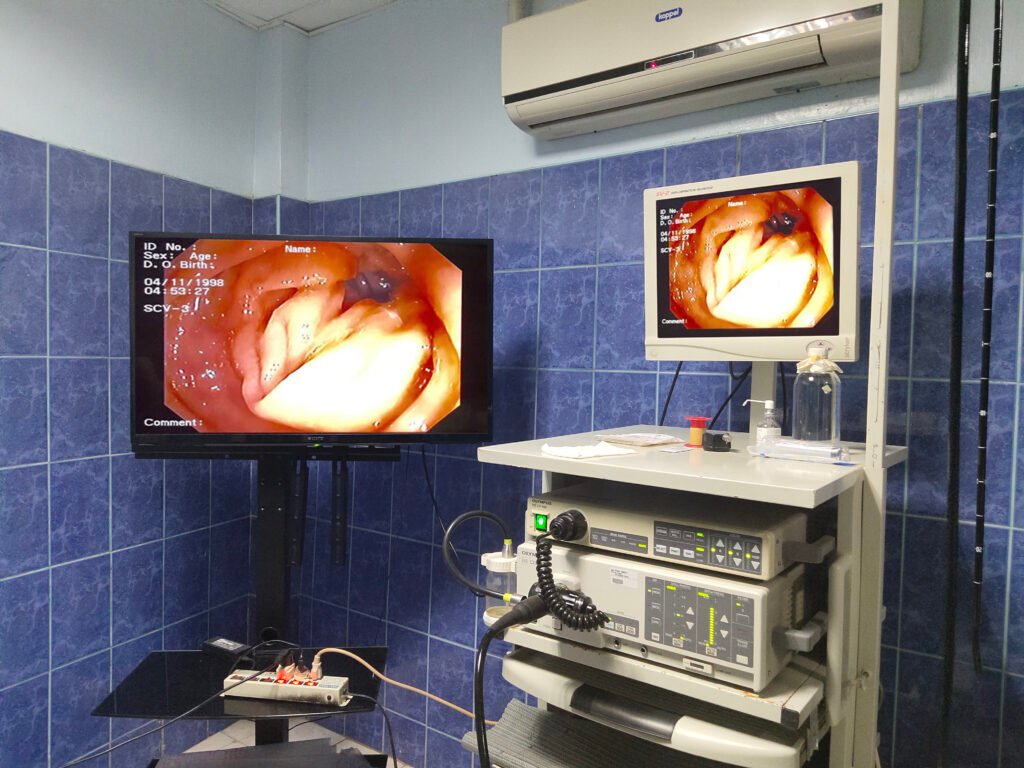
Colorectal cancer is a type of cancer that develops slowly over several years from uncontrolled cell growth in the colon or rectum. It is the fourth leading cause of cancer-related death worldwide and affects individuals over the age of 50.
In the Philippines, colorectal cancer is the fourth leading cause of cancer-related deaths among Filipinos. Personal or family history of colorectal cancer, polyps in the rectum or colon, and inflammatory bowel disease increase the risk of developing the disease. Lifestyle factors, such as a diet high in fat and low in fruits and vegetables, alcohol consumption, and physical inactivity, also increase the risk. Most early colorectal cancers have no symptoms, but changes in bowel habits, weight loss, unexplained anemia, and blood in the stool may be indicators of the disease.

Signs and symptoms of colon cancer include:
Many people with colon cancer experience no symptoms in the early stages of the disease. When symptoms appear, they’ll likely vary, depending on the cancer’s size and location in your large intestine.


The Department of Health (DOH) in the Philippines has been running awareness campaigns to inform the public that colorectal cancer can be cured if detected early. DOH recommends screening for colorectal cancer for individuals aged 50 years and above. To decrease the risk of acquiring the disease, DOH encourages people to maintain a healthy lifestyle by engaging in physical activities, eating a balanced diet, reducing alcohol intake, and avoiding smoking.
You can take steps to reduce your risk of colon cancer by making changes in your everyday life. Take steps to: of colorectal cancer:
Fruits, vegetables and whole grains contain vitamins, minerals, fiber and antioxidants, which may play a role in cancer prevention. Choose a variety of fruits and vegetables so that you get an array of vitamins and nutrients.
If you choose to drink alcohol, limit the amount of alcohol you drink to no more than one drink a day for women and two for men.
Talk to your doctor about ways to quit that may work for you.
Try to get at least 30 minutes of exercise on most days. If you’ve been inactive, start slowly and build up gradually to 30 minutes. Also, talk to your doctor before starting any exercise program.
If you are at a healthy weight, work to maintain your weight by combining a healthy diet with daily exercise. If you need to lose weight, ask your doctor about healthy ways to achieve your goal. Aim to lose weight slowly by increasing the amount of exercise you get and reducing the number of calories you eat.
In several countries, CRC screening is recommended for people starting the age of 50 years. Screening at an earlier age, usually at 40, is advocated in first-degree relatives of patients with colorectal cancer, and in those with other additional risk factors. Currently in the United States, a recommendation to start screening the average-risk patients earlier at the age of 45 due to increasing incidence of colorectal cancer in younger individuals. The death of “Black Panther” star Chadwick Boseman last year brought the spotlight on colorectal cancer, when he died at a young age of 43.
The gold standard for CRC screening is a COLONOSCOPY as it can detect and remove pre-cancerous polyps. The procedure involves a flexible fiber-optic scope with a camera that is inserted through the rectum and is carefully advanced to visualize the colon under mild anesthesia.
Colon cancer can take many years to develop, so early detection is key to stopping it in its tracks. Starting at age 45, you should schedule your first colonoscopy. We make it easy to schedule that screening at St.Clare’s, no matter what age you need to start. Either talk to your primary care physician for a referral or you make an appointment with any of our gastroenterologists directly. Because early detection makes all the difference when it comes to colon cancer.


Colorectal cancer is deadly. It’s also preventable.
We are ready to schedule your colonoscopy now, so make us your most trusted partner in fighting this most preventable disease. Schedule your screening today.
Did you know that most people have no symptoms or prior family history? Individuals with average risk should begin screening for colorectal cancer at age 45 and when screened and detected early, the five-year survival rate for colon cancer is 90%.
Talk to your health care provider about your options for colorectal cancer screening. No matter which test you choose, the most important thing is to GET SCREENED.
Our website uses cookies to provide you with the best browsing experience.
By continuing to browse our website, you agree to use of cookies.